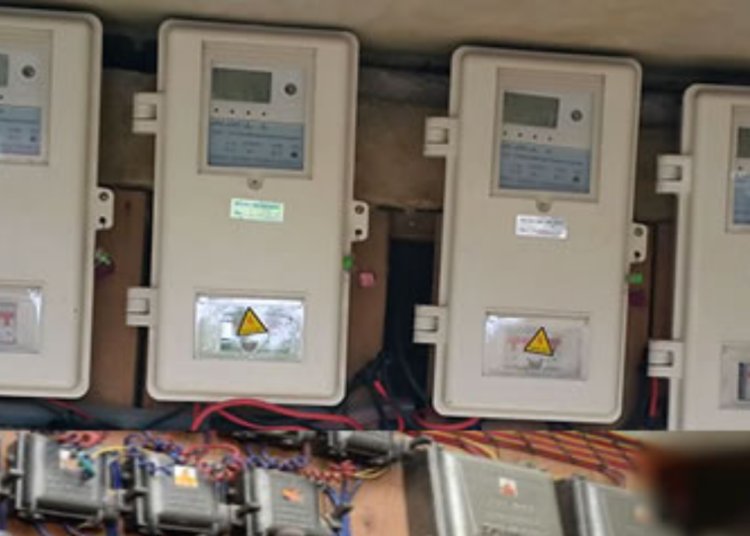Stakeholders in the power sector have sharply disagreed on the process of meter deployment to consumers, although there is no reliable data as at today to properly determine the gap in the metering of consumers.
The Nigerian Electricity Commission (NERC), whose figure is more reliable, said the number of power consumers on estimated billing, who lack meters, is over 7.8 million.
The number of unmetered power users increased from about six million in 2021 to the latest figure as at last year.
The commission said: “the huge metering gap for end-use customers is still a key challenge in the industry. It is estimated that of the 12,542,581 registered energy customers as at March 2022, only 4,740,114 (37.79 per cent) have been metered.”
This implies that a total of 7,802,467 power users are without meters and receive estimated electricity bills.
The NERC added that, “A total of 85,510 meters were installed in 2022/Q1 as compared to the 79,978 meters installed in 2021/Q4. At a macro level, quarterly meter installations have been reducing as a result of the winding down of the National Mass Metering Programme phase 0.
“By comparison, the net metering rate dropped from 45.40 per cent metering as at December 2021 to 37.79 per cent in March 2022. This can be explained by the constant updating of Discos (distribution companies) customer base information as a result of ongoing customer enumeration.
“The commission, however, said it had continued to engage relevant stakeholders to ensure month-on-month increments in metering rate.”
The report stated that the NERC was also instituting safeguards against the over-billing of unmetered customers by setting maximum limits to the amount of energy that might be billed to an unmetered customer during a period.
LEADERSHIP reports that the federal government has planned to deploy that six million meters nationwide in the first and second quarters of this year to reduce the number of unmetered electricity consumers in Nigeria.
The report stated that the government disclosed in a December 2022 document the review of the performance of the power sector/Nigerian Electricity Supply Industry under the current administration.
However, the number of metered electricity customers in Nigeria stood at 5.47 million in Q2 2023, indicating a growth of 10.4 per cent from the figure reported in Q2 2022 which was 4.96 million.
On a quarter-on-quarter basis, the growth was only 3.1 per cent from 5.31 million recorded in the preceding quarter.
However, the recent increase in the price of pre-paid meters, which became effective on September 6, 2023, has caused a rash of criticisms from critical stakeholders citing that the cost is high and yet the meters are not available.
The new prices have been criticised by stakeholders on the ground that they could discourage consumers from procuring meters.
According to the new prices as released by the NERC, a single-phase meter will now cost N81,975.16 kobo, instead of the previous price of N58,661.69 kobo
Similarly, the price of a three-phase meter was increased to N143,836.1 kobo from N109,684.36 kobo.
The National Bureau of Statistics (NBS), in its Nigeria Electricity Report Q2 2023, said the estimated customers during the quarter increased by six million, a 0.72 per cent increase from 5.96 million in Q1 2023, while on a year-on-year basis, estimated customers increased by 2.58 per cent in Q2 2023, from 5.85 million in Q2 2022.
In a conversation with our Correspondent, the president, Nigeria Consumer Protection Network, Kunle Kola Olubiyo said, the 40 per cent increase in the price of meters is not coming as a surprise considering the fact that the Importers of meters and meters assembling plants have over the last 12 months been making serious case for upward review of pre-paid meters.
Olubiyo said, the Importers of the Pre Paid Meters and Meters Assembling Plants are of the views that the appropriate Price of Single Phase Prepaid Meters should be N90,000 and that 3 Phase Prepaid Meters should ordinarily be selling for N160,000 or more.
He said they have argued that they source forex from Parallel Market, and suffer recent increase in Customs Imports Duties/Customs charges, devaluation of the Naira and other multiple charges by different Government Agencies at Ports .
He argued that meters which are meant to enhance Cost Recovery, Energy Accountability and Returns of Investment for Electricity Distribution Companies should be the responsibility of the DisCos.
According to him, the Service Level Agreement, SLA signed by DisCos is strictly an obligation/ pledge made by DisCos/ Distribution Licensees as a Condition Precedent to Acquisition of the Licensees.
“The Business of Provisions of Pre Paid Meters by the Electricity Distribution Companies as a means to guaranteed Revenue Efficiencies and Collection Efficiencies ordinarily should have been the Business between the Distribution Licensees and the Meters Assembling Plants or Vendors in Electricity Electricity Market,” he stressed.
He said, considering the low income or disposable incomes of an average Nigerian End Users Customers, it might be difficult for many to afford the new rates without a mechanism for refunds via electricity token and this may further increase the huge metering gaps in the Electricity Market.
We’ve got the edge. Get real-time reports, breaking scoops, and exclusive angles delivered straight to your phone. Don’t settle for stale news. Join LEADERSHIP NEWS on WhatsApp for 24/7 updates →
Join Our WhatsApp Channel










